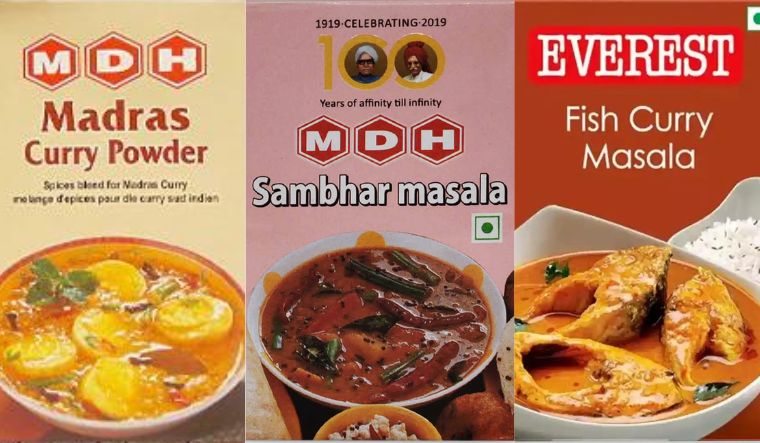Hong Kong and Singapore Ban MDH and Everest Spices Over Cancer-Causing Pesticide Contamination

Hong Kong and Singapore Ban MDH and Everest Spices Over Cancer-Causing Pesticide Contamination (Representational Pic)
Hong Kong’s Center for Food Safety (CFS) has taken decisive action against two renowned Indian spice brands, MDH and Everest, following the detection of the carcinogenic pesticide ethylene oxide in several spice mixes. This move mirrors a similar action taken by Singapore on April 18.
Ethylene oxide is a known cancer-causing agent and is deemed unsafe for human consumption. The CFS announced its findings on April 5, revealing that the levels of ethylene oxide found in these spice products exceeded the permissible limits set by Hong Kong regulations. The sale of food containing pesticide residues beyond safe limits is strictly prohibited in Hong Kong under the Pesticide Residues in Food Regulation (Cap. 132CM).
The CFS’s routine surveillance programs uncovered the presence of ethylene oxide in three spice mixes from the MDH Group, namely Madras Curry Powder, Sambhar Masala Powder, and Curry Powder. Following this discovery, the CFS promptly informed the vendors concerned and instructed them to cease the sale and remove the affected products from shelves.
In Singapore, the Food Agency (SFA) had previously recalled India’s Everest Fish Curry Masala due to the presence of ethylene oxide beyond permissible limits. The importer, Sp Muthiah & Sons, was directed to recall the products, and consumers were advised against consuming them.
Everest, a 57-year-old spice brand founded by the late Vadilal Bhai Shah, is India’s largest manufacturer of pure and blended spices, with a presence in more than 80 countries globally. Despite its reputation, the detection of ethylene oxide contamination underscores the importance of stringent food safety regulations and vigilance in monitoring the quality of food products sold in international markets.
The actions taken by the Hong Kong and Singapore authorities serve as a reminder of the critical need for food safety standards to protect consumers from harmful substances and ensure the integrity of the global food supply chain.








